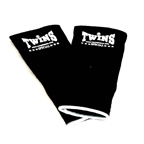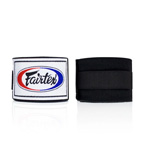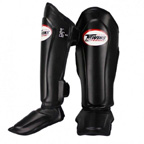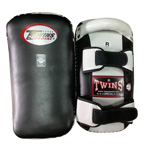
- Date: Friday, September 6, 2024
- Categories: Khao Lak, Muay Thai, Other, Training
When you decide to have your first Muay Thai fight in Thailand, it’s a big decision. The birthplace of Muay Thai, Thailand, is the best place to test your skills. At Khao Lak Muay Thai (KLMT), we see students from around the world come with a desire to experience the authentic thrill of stepping into the ring for the first time. But before you tie your first pair of Thai shorts and put on your mongkol, there’s a lot to consider—from preparation at home to the cultural intricacies of training in Thailand, mental readiness, and recovery.
Before Arriving in Thailand: Laying the Foundation is Key
No matter your level of experience, consistency is the cornerstone of Muay Thai success. Whether you’re an experienced fighter or a complete beginner, getting into a regular rhythm with your strength and conditioning is crucial. As Don Heatrick, a well-known Muay Thai expert, emphasizes, "Don’t underestimate the importance of discipline in strength and conditioning. It’s all too easy to become distracted by what’s shiny and new, only to shortcut progress by playing your ace too early."
Training at home should include:

- Strength Training: Focus on power (speed and strength) with compound lifts and functional movements instead of focusing purely on strength, and don’t neglect plyometric and ballistic exercises for the explosiveness in your movements.
- Cardio and Endurance Work: High-intensity interval training (HIIT), long-distance running, and sprints should be part of your routine to prepare for the demands of 3-5 rounds of intense fighting.
- Muay Thai Drills: If you have access to a Muay Thai gym, be consistent with your technique, practice it while shadowboxing and on the heavy bag; pad work with your coach, and sparring with experienced fighters will be the most beneficial for you.
Watch Your Diet: Fuel Your Body for Performance
Nutrition plays a pivotal role in your preparation. Before coming to Thailand, it's important to start thinking of food as fuel for your training, not just something to enjoy. This doesn’t mean sacrificing flavor—after all, Thai cuisine is known for being both delicious and can be healthy, if you make smart choices, and don't overeat (easily done!).

- Prioritize Lean Proteins, Complex Carbs, and Healthy Fats: These are essential to support your training load and recovery, but it is important to time the consumption of these well. Consult an expert if you are new to this!
- Hydrate: Water is key, especially in the Thai heat. Be sure to include electrolytes to replenish lost minerals.
- Eat for Recovery: Incorporate anti-inflammatory foods like turmeric, ginger, and leafy greens to help with muscle recovery.
- Avoid Fried Foods and Too Much Sugar: Street food can be tempting, but stick to grilled or steamed options, and swap sugary drinks for water or fresh coconut water. Note: There is sugar in every meal in Thailand, so make sure you order yours without it, “mai sai nam tan” in Thai.
Upon Arrival in Thailand: Thai-Style Conditioning - A Whole New Level
The heat and humidity of Thailand are significant factors that intensify the training experience. Fighters often describe the conditioning process here as more grueling than anywhere else. At KLMT, you'll train twice a day, six days a week, and besides working on the bag and pads, every day will be slightly different in terms of sparring, clinching, and functional training.
In Thailand, there's a strong emphasis on traditional conditioning methods:

- Running & Skipping: Fighters run and skip twice daily; hence, preparation before your arrival is crucial. It's not just for cardio; it’s for building mental toughness. In this game, being tired is not an option, you have to keep going.
- Pad Work & Sparring: These form the core of every session. Expect to train with experienced pad holders and fighters.
- Clinching: Thai fighters are masters of clinching, and this will be an integral part of your training. Prepare to clinch for long periods—this is where your mental toughness is built.
Gym Etiquette in Thailand
Thai gyms, like KLMT, have their own etiquette. Respect is a big part of Muay Thai culture. Always bow when entering or leaving the gym, and address your trainers as "Kru," meaning teacher. Respect is as important as strength or technique. If you don’t respect your Kru and training partners, you won’t grow in Muay Thai.
Mental Preparation: The Fight is 90% Mental
Liam Harrison, one of the most renowned Muay Thai fighters from the UK, often emphasizes mental toughness and consistency in training:
“You’re not always going to have the motivation to train, so the discipline has to take over. Motivation gets you started, discipline keeps you going.”
Mental conditioning is just as important as physical training. In Thailand, many fighters perform grueling physical tasks to strengthen their minds. It’s common to experience exhaustion and doubt during training, but pushing through these mental barriers is what separates a good fighter from a great one.
Fighting is 90% mental. You can be in the best physical shape of your life, but if your mind isn’t prepared, you’ll crumble in the ring. Visualize yourself in the fight, mentally rehearse each round, and imagine yourself overcoming obstacles.
Recovery: The Key to Longevity
Training twice a day under the hot Thai sun will take its toll on your body. Recovery is crucial if you want to last through your fight camp and step into the ring fresh. Here are some ways to ensure optimal recovery at KLMT:

- Ice Bath: 10-15 minutes a day will help with recovery, reduce muscle soreness, and inflammation. It’s great for a mental recovery too—give it a go, you’ll see!
- Thai Massage: Thai massages are not just relaxing but help improve circulation, flexibility, and relieve muscle tension.
- Sleep: Ensure you're getting enough sleep to allow your body to repair itself.
- Nutrition: Post-training meals are critical. In Thailand, you have access to a wide array of nutritious and delicious food.
- Rest Days: One day off per week is usually standard at Thai gyms, and it's vital for both physical and mental recovery.
The Fight: Stepping into the Ring
Now, the big day has arrived. The fight itself is a culmination of all your hard work, but it’s also a moment filled with ritual, nerves, and excitement.

Pre-Fight Rituals and Nerves
Before you step into the ring, you'll perform the Wai Kru, a traditional pre-fight dance that shows respect to your trainers and opponents. It’s a moment to calm your nerves and mentally center yourself. Fighters often talk about how their nerves peak right before the fight. Jonathan Haggerty says pre-fight nerves remind him that he’s the best in the world—let’s hope we all get there some day!
Control your fears, don't let them control you. Turn it to your advantage, and accept the fact that it’s normal, it’s a natural part of being human. Every fighter is nervous before a fight, but they have faith in themselves. They put the work into it and step into the ring to win. True competition isn’t for those who shy away—it demands courage and resilience. Try to enjoy the experience, the first fight will be a learning curve, and all about the experience.
The Fight Itself: No Protection, No Easy Rounds
Unlike amateur fights outside of Thailand, Thai fights are without protective gear—just your gum shield and gloves. There might not even be a weigh-in if you’re fighting at a small local show. Fights can be intense, with both fighters pushing the pace from the first round. Remember that it’s not just about aggression; technique, strategy, and mental resilience will carry you through.
The Outcome: Win or Lose
Win or lose, your first Muay Thai fight in Thailand will be an unforgettable experience. You’ll learn that the most important thing is to have your heart in the right place. At KLMT, our trainers will help you analyze your fight and learn from it. Every fight teaches you something new. Whether you win or lose, take that knowledge with you and keep improving.

Conclusion
Fighting in Thailand is a life-changing experience for anyone who loves Muay Thai. At Khao Lak Muay Thai, we’ve seen fighters transform not just physically, but mentally, during their time here. Preparing for your first fight requires discipline, both before and after you arrive in Thailand. But with the right mindset, solid preparation, and a focus on recovery, your journey to the ring will be a rewarding one.
Whether you win or lose, stepping into the ring in Thailand is a victory in itself. It’s the realization of a dream, and something you’ll carry with you forever.
Ready to start your journey? Khao Lak Muay Thai is here to guide you every step of the way. Let’s get started!







